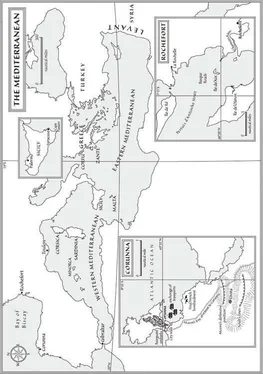Julian Stockwin - The Iberian Flame - Thomas Kydd 20
Здесь есть возможность читать онлайн «Julian Stockwin - The Iberian Flame - Thomas Kydd 20» весь текст электронной книги совершенно бесплатно (целиком полную версию без сокращений). В некоторых случаях можно слушать аудио, скачать через торрент в формате fb2 и присутствует краткое содержание. Год выпуска: 2018, Издательство: Hodder & Stoughton, Жанр: Старинная литература, на английском языке. Описание произведения, (предисловие) а так же отзывы посетителей доступны на портале библиотеки ЛибКат.
- Название:The Iberian Flame: Thomas Kydd 20
- Автор:
- Издательство:Hodder & Stoughton
- Жанр:
- Год:2018
- ISBN:нет данных
- Рейтинг книги:3 / 5. Голосов: 1
-
Избранное:Добавить в избранное
- Отзывы:
-
Ваша оценка:
- 60
- 1
- 2
- 3
- 4
- 5
The Iberian Flame: Thomas Kydd 20: краткое содержание, описание и аннотация
Предлагаем к чтению аннотацию, описание, краткое содержание или предисловие (зависит от того, что написал сам автор книги «The Iberian Flame: Thomas Kydd 20»). Если вы не нашли необходимую информацию о книге — напишите в комментариях, мы постараемся отыскать её.
The Iberian Flame: Thomas Kydd 20 — читать онлайн бесплатно полную книгу (весь текст) целиком
Ниже представлен текст книги, разбитый по страницам. Система сохранения места последней прочитанной страницы, позволяет с удобством читать онлайн бесплатно книгу «The Iberian Flame: Thomas Kydd 20», без необходимости каждый раз заново искать на чём Вы остановились. Поставьте закладку, и сможете в любой момент перейти на страницу, на которой закончили чтение.
Интервал:
Закладка:
The palace was ancient and vast, set among magnificent gardens and fountains. A pale stone edifice, it was filled to breath-taking resplendence with loot seized from every conquered nation. A matchless display of pomp and imperial might, it also served as a receiving place for the procession of defeated kings, wavering allies and helpless supplicants, who made their way to the centre of power of the civilised world.
Sitting stiffly in the gilded and sculpted Salon de Réception, Eugenio Izquierdo was not immune to its overpowering effect. An envoy of the King of Spain, His Catholic Majesty Carlos IV, he was a loyal and valuable ally who could count on respect and honour. Yet he quaked to think that in a short while he would be called into the Grand Council Chamber to stand before the Emperor himself.
He knew that Bonaparte usually worked alone in a modest study from dawn until long into the night, no detail too slight for his attention. He was served by a corps of devoted and ambitious marshals and functionaries. When the military genius appeared in the council chamber there would be no time for prevarication, pretence or airs: it would be down to the essentials, which had to be flawless in detail and, above all, have at their core the overriding interests of the Emperor.
Izquierdo had been trusted by Spain to lay before Bonaparte a proposal that would bring the two nations closer than ever before: a daring plan to seize a crown and nation for their common devouring. It should be an irresistible lure to the great man now at the height of his powers and chafing at the irritations arising from the impudence of the last nation in Europe to defy him, Great Britain. He hoped for a good hearing – but what if he were out-foxed by the wily victor of Tilsit? Known for his unpredictable cunning, Bonaparte might well take the plan and, ignoring Spain, move alone to secure the prize.
But his master, Manuel Godoy y Álvarez de Faria, first minister to Carlos IV, had foreseen this possibility. The relationship was not to be a loose understanding open to interpretation. Izquierdo had to see to it that he secured a formal treaty between sovereign powers that spelled out not just the distribution of spoils but the duties and obligations of both, such that there could be no going back on the word of a principal.
Izquierdo knew it would take every nerve in his being to stand before the conqueror of the world to demand such a condition.
He heard voices and the scrape of chairs in the next room. Heart in his mouth, he waited. The doors swept open and Marshal of the Palace Géraud Duroc appeared in all his magnificence. ‘His Imperial Majesty is now in audience,’ he announced coldly.
Five days later, weak with exhaustion but buoyed with exhilaration, Izquierdo sat at his desk and began to write.
For Godoy, it had been a wearisome and nerve-racking wait. His hold over the amiable and ageing King was undiminished, but this shaking of the foundations of the proud traditions and long history of Spain by an outsider threatened the old order – and who knew when it would settle to the familiar ways once more? This daring proposal to Bonaparte must succeed.
The unwelcome war between Napoleon’s France and her ancient rival England had caused untold ruin to the economy, not the least being the severing of ties with their South American colonies by the marauding Royal Navy, with the flow of silver and produce virtually cut off. Spanish troops had been taken up by Bonaparte to far parts of the world to aid in his conquests and a subsidy of millions in silver reales had been demanded.
He’d had to play off factions, keep grandees satisfied with tawdry honours and, by a network of spies and informants, watch for unrest and discontent in the sprawling, rugged and individualistic land that was Spain. Godoy, known as the ‘Prince of the Peace’, was the most hated of the king’s advisers. Ironically, his enemies included those who stood to lose most if he failed – the ancient lineage, the haughty aristocracy who hankered after the days of Spain standing astride the world, a handful of conquistadors carving out vast empires in a new continent to the glory of God and the Spanish Crown.
Yet as long as he retained the unquestioning trust of the King he was safe, and this he ensured by interpreting the buzz and confusion of the outside world to him in a soothing and glib fashion, every so often uncovering some plot or intrigue to demonstrate his loyalty and devotion. He had early taken the precaution of becoming the Queen’s lover, the sottish woman insatiable, a trying burden now she was in her fifties, with nothing to do but plot.
‘Excellency.’
It was a messenger – and he bore a missive. Swallowing his apprehension Godoy held out his hand then waved the man away and retired to his desk, almost afraid of what he would read.
A quick scan reassured him and, in rising excitement, he took in the hurried phrases.
He’d been right to entrust Izquierdo with the business: Napoleon Bonaparte had taken the bait.
In his eagerness he’d been willing to make a binding agreement, the Treaty of Fontainebleau, and in it was detailed the formal dismembering of the corpse of Portugal, now bereft of its sovereign, who had fled to Brazil.
Portentously, the Emperor had pronounced that: ‘The name of Portugal is to be removed from the list of nations’, the land divided in thirds between them. Oporto and the north would become the kingdom of Northern Lusitania and go to the young King of Etruria. The centre, including Lisbon, was to be administered by France until the conclusion of a general peace. But gloriously, wonderfully, all of southern Portugal, including Alentejo, was to be made an independent principality … under the rule of one Don Manuel Godoy, to be styled Prince of the Algarves.
In lesser paragraphs there was detail on how it was to be accomplished. With the gracious permission of King Carlos, French columns would enter Spain, and thereby be made quite safe from the predacious Royal Navy, enabled to march overland to join in a descent on helpless Portugal from both north and south. It was expected that the whole affair could be concluded in no more than small months.
At last – no more waiting. In a paroxysm of impatience Godoy got to his feet. There was no point in delay: he would get the business under way immediately.
‘Chancellor Godoy, Majesty.’
‘Oh. Come in, mi primo ,’ King Carlos grunted genially, holding his arms high as his slim-fitting leather hunting surcoat was eased on. ‘You have something for me?’
Godoy had timed it well. Affairs of state were a tiresome intrusion when the hunting field beckoned, as it so often did. It shouldn’t take long. ‘Good news, sire, much to be welcomed in these parlous times. An initiative I’ve caused to be raised before the French Emperor has been received with a pleasing degree of acclamation.’
‘Really. Then well done, Godoy. Er, what’s it all about?’
‘Bonaparte is restless, seeing Portugal without a ruler yet flouting his offers of friendship – and, worse, seeking to plot with the British to our common distress. There is a solution I have humbly offered, which he has seen fit to accede to. It is, sire, the answer to centuries of Spanish humiliation – no less than the final unifying of the Iberian peninsula under our banner.’
‘What can you mean by this, Godoy? How can—’
‘In return for a fair division of the proceeds of the dissolution of the Portuguese nation into a Spanish province, he will provide sufficient troops to join with us in our reordering of the progress of history. For this he undertakes to enact a grand treaty between our two nations, to remain secret until we are ready to march.’
The King paused, his face comically pulled out of shape by the tight surcoat inching its way on. ‘That’s all he wants?’
Читать дальшеИнтервал:
Закладка:
Похожие книги на «The Iberian Flame: Thomas Kydd 20»
Представляем Вашему вниманию похожие книги на «The Iberian Flame: Thomas Kydd 20» списком для выбора. Мы отобрали схожую по названию и смыслу литературу в надежде предоставить читателям больше вариантов отыскать новые, интересные, ещё непрочитанные произведения.
Обсуждение, отзывы о книге «The Iberian Flame: Thomas Kydd 20» и просто собственные мнения читателей. Оставьте ваши комментарии, напишите, что Вы думаете о произведении, его смысле или главных героях. Укажите что конкретно понравилось, а что нет, и почему Вы так считаете.










